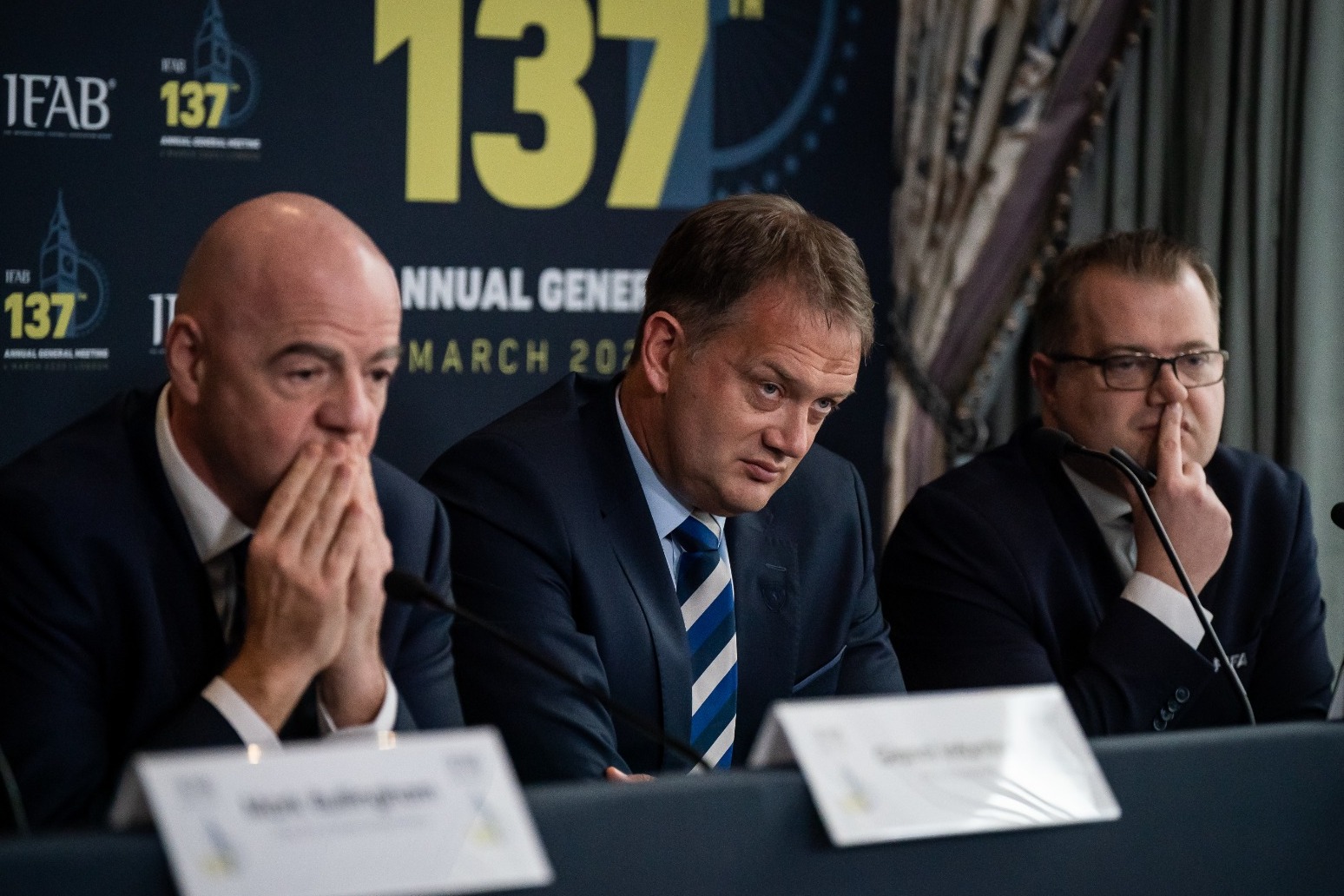
The Premier League will be monitored next season to make sure referees are accurately calculating the length of stoppages in matches, FIFA president Gianni Infantino has said.
FIFA’s referees chief Pierluigi Collina led a concerted effort to cut down time-wasting at last year’s World Cup finals in Qatar, and the International Football Association Board now wants the same criteria to be used in competitions worldwide from July 1.
On average, a BBC study published this week found 11 minutes and eight seconds were added on in total in first-round matches in Qatar.
Goal celebrations, as well as player injuries, substitutions and VAR checks must all be closely monitored by officials.
“We have seen a very inconsistent application of these laws of the game when it comes to time-wasting, and some leagues have matches lasting less than 50 minutes, and others have around 60 minutes now,” Infantino said at a press conference in London.
“We will count on the good and positive spirit of everyone, I don’t think there is any (need for) coercive measures.
“We will monitor leagues all over the world and search for dialogue. We are not changing the laws of the game, and there will be no stoppage clock.”
The IFAB also confirmed the decision of the annual business meeting in January to reject a trial of temporary concussion substitutes in the Premier League, France’s Ligue 1 and Major League Soccer in the United States.
The Premier League and the Professional Footballers’ Association had written to the IFAB asking for it to reconsider, with the PFA saying nearly 80 per cent of its members supported a trial in a recent consultation.
Infantino said: “We have decided to put the health of the players at the top. We started a trial with permanent substitutions. We are still waiting to receive more data more information.
“If there is a risk or feeling or possibility that there has been a concussion it’s better to take the player out, to take zero risk.”
The PA news agency understands WLF and FIFPRO will meet next week to assess the situation following the further rejection of the trial.
The PFA’s head of brain health Dr Adam White said: “We remain committed to improving how brain injuries are managed during games and will continue to work with leagues and player associations from across world football to push for measures that prioritise player safety.”
Supporters of temporary concussion subs say allowing medics more time to assess a player away from the pitch will pick up more concussions and reduce the risk of a concussed player being sent back out to play.
FIFA accepts rolling out education worldwide around protecting players from brain injury is a priority, with the global governing body keen to express it in those terms to underline the seriousness of it, rather than concussion. FIFA also wants to ensure the threshold is low for withdrawing a player with a suspected brain injury.
The temporary model, it argues, creates a risk of ‘false negatives’ where players are sent back on following the 10-minute assessment.
The IFAB also amended the wording of Law 14 to clamp down on goalkeeper gamesmanship at penalties.
It follows the high-profile example of Argentina goalkeeper Emiliano Martinez seeking to put off France’s penalty-takers in the World Cup final shoot-out. Martinez was eventually booked, but that was at the referee’s discretion. Now, the offence has been enshrined in law.
The updated Law 14 will state “goalkeepers must not behave in a way that unfairly distracts the kicker at a penalty kick or during penalties” and will come into effect from July 1.
The IFAB also discussed respect towards referees. The Football Association began a trial using bodycams in grassroots football last month in a bid to improve the behaviour of players, coaches and spectators towards officials.
Infantino said: “It has to be a priority of FIFA, all associations in the world to protect referees. Whatever good idea anyone has, please bring it forward.
“We’ll take it on board because it’s a problem, an issue all over the world, and we are losing a lot of young referees. Why would you referee a game if you’re insulted or hit by people?”
Published: by Radio NewsHub













